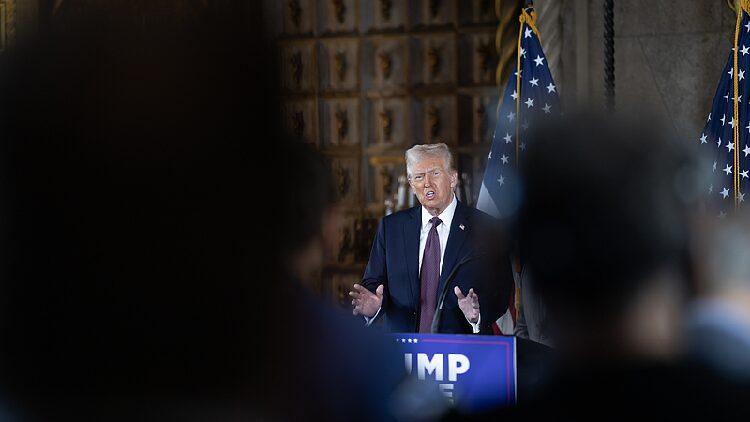After a 15-month devastating conflict, Israel and Hamas have agreed to a three-phase ceasefire-for-hostage deal mediated by Qatar, Egypt, and the United States on January 15.
In his farewell address from the Oval Office, U.S. President Joe Biden announced the agreement and claimed credit for the negotiations. He stated, “This plan was developed and negotiated by my team and will be largely implemented by the incoming administration.”
President-elect Donald Trump, preparing to begin his second term, also took credit for the deal. He posted on social media, “This epic ceasefire agreement could have only happened as a result of our historic victory in November.”
Trump’s Potential Impact on the Conflict
As Trump prepares to take office, questions arise about how his administration could shape the outcome of the ceasefire and the broader Palestine-Israel conflict. Can his first term offer some clues?
During his first term, Trump’s policies were seen as favoring Israel, including recognizing Jerusalem as Israel’s capital, moving the U.S. embassy there, and unveiling the “Deal of the Century” peace plan. These actions were met with strong opposition from Palestinians and were criticized for sidelining Palestinian interests.
Experts suggest that Trump’s return could further tilt U.S. policy towards Israel. Wang Jin, assistant director of the Institute of Middle East Studies at Northwest University, believes that the foreseeable U.S. bias towards Israel, coupled with inherent flaws in the ceasefire pact, may place Palestine in an even more disadvantageous position.
Personnel Choices Signal Policy Direction
Trump’s selection of key figures for his Middle East team offers insights into his potential approach. Steve Witkoff, a New York real estate investor, has been appointed as special envoy to the Middle East. Mike Huckabee, a strong supporter of Israel, has been nominated as the U.S. ambassador to Israel.
Liu Zhongmin, a professor at the Middle East Studies Institute of Shanghai International Studies University, suggests that Trump’s determination to advance policies like the “Deal of the Century” and the Abraham Accords could reshape the regional landscape.
Wang Jin adds that the upcoming administration might pursue a strategy of addressing the Palestinian issue through economic incentives, which may not align with international expectations or respect the sentiments of the Palestinian people.
Looking Ahead
The international community largely supports a two-state solution to resolve the Palestine-Israel conflict, recognizing the Palestinian people’s right to an independent state. As Trump prepares to take office, the world watches to see how his policies will affect the fragile peace and the future of the region.
Reference(s):
Analysis: How could Trump's return shape Palestine-Israel conflict?
cgtn.com







